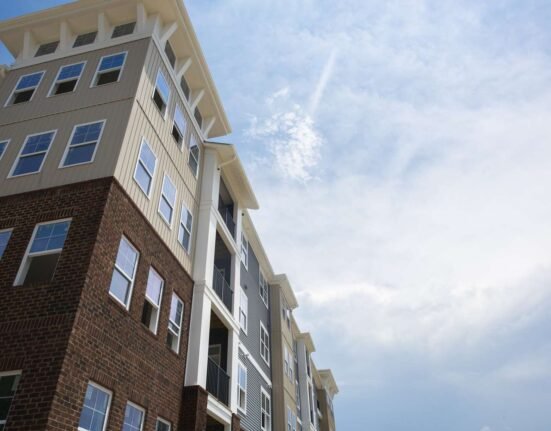
Photo Courtesy/WV Legislative Photography
House Speaker Roger Hanshaw, left, and House Finance Committee Chairman Vernon Criss go over bills with staff on Tuesday’s floor agenda in the House of Delegates.
CHARLESTON — After weeks of uncertainty among some lawmakers regarding a proposal by Gov. Jim Justice for a 5% personal income tax cut, the governor’s second special session of 2024 neared the end Tuesday with a compromise tax cut and Justice’s proposed child care tax credit.
By Tuesday night, lawmakers passed 31 out of the 42 bills presented to the Legislature by Justice in his first special session proclamation and two amended proclamations. Debate continued into the evening on the remaining bills.
In July and subsequent months, Justice said he would call the Legislature into special session in the fall to consider a 5% cut in personal income tax rates, which would have returned approximately $115 million to taxpayers when fully implemented. Justice also said he would re-introduce a child care tax credit he first recommended during the 2024 regular session of the Legislature earlier this year.
Leading up to September, some lawmakers expressed concerns about the state’s ability to afford a 5% personal income tax cut beginning in fiscal year 2026. Justice called the special session for Sept. 30, but after meeting for one day, the state Senate and House of Delegates adjourned until Sunday coinciding with the start of October legislative interim meetings to give lawmakers and the Governor’s Office time to negotiate towards an agreement.
By Monday afternoon, a compromise was reached, with Justice agreeing to cut personal income tax rates by 2% effective January 2025, returning $46 million to taxpayers when fully implemented. The 2% cut will join a 4% personal income tax that also goes into effect this coming January which will return approximately $92 million to taxpayers when fully implemented.
“(Taxpayers) will see a reduction in their taxes and their weekly paychecks starting in January 2025,” said House Finance Committee Chairman Vernon Criss, R-Wood.
The lost tax revenue will be made up in part from $19 million that will be available when a revenue bond is paid off soon. The remaining $27 million will come from cost savings ongoing from the reorganization of the Department of Health and Human Resources (DHHR) into the departments of Health, Human Services, and Health Facilities.
“That is one of our largest agencies in excess of $1 billion,” Criss said. “We all have been looking for savings in other areas of government, and especially DHHR to redirect those dollars to areas we all think that policy needs to change. Along the way, we knew there were savings involved…Even though we don’t know the ramifications yet of the split up, there is evidently more cost-savings there than we had intended to see when we did that.”
The Senate passed Senate Bill 2033, the 2% tax cut, in a 31-1 vote Monday night. The House passed SB 2033 Tuesday afternoon in a 90-6 vote. The 2% and 4% cuts, combined with the 21.25 personal income tax cut passed in 2023, will return more than $626 million to taxpayers.
“Even a little bit is meaningful,” said Del. Larry Kump, R-Berkeley. “Anything we can do to reduce the tax burden on our taxpayers is a good thing.”
“We’ve taken incremental steps to make sure that West Virginia is the best place to live, work and raise a family,” said Del. Brandon Steele, R-Raleigh. “This is another first down in that game. Is it a touchdown? No. It’s another 2% but look at where we’ve come.”
“This is a path we’ve been going down and we should continue to support it,” said Del. Clay Riley, R-Harrison. “We should continue to reduce the taxes and reduce the burdens on West Virginians and continue to put money back in their pockets.”
The bill was opposed by six out of the 10 members of the House Democratic caucus present: Del. Anitra Hamilton, D-Monongalia; House Minority Leader Sean Hornbuckle, D-Cabell; Del. Larry Rowe, D-Kanawha; House Minority Leader Pro Tempore Kayla Young, D-Kanawha; Del. Evan Hansen, D-Monongalia; and Del. Mike Pushkin, D-Kanawha.
The minority caucus raised concerns about pulling money from the former DHHR when there are existing needs, saying that the tax cut is an election-year political stunt that will provide minimal benefit to taxpayers.
“We’ve had it confirmed that we will be taking money from the very department that all 100 of us…have talked about time and time again for the welfare of our children,” Hornbuckle said. “We’ve had it confirmed that this tax cut is not very meaningful. For the average West Virginian, it’s about $200 per year or 40 cents per week.”
“If we just found $27 million, why are we not asking where is that money coming from? I do not understand, especially since it’s coming from human services,” Young said. “I would love to give as much money as possible back to families and I’ve never voted against a tax cut, but I don’t feel comfortable not knowing where this money is coming from.”
SB 2033 also delays the effective date of the next personal income tax trigger put in place by the 2023 tax reform package. When the Department of Revenue determines the next personal income tax cut in August based on the trigger and formula, instead of that tax cut going into effect in tax year 2026, it would go into effect in tax year 2027.
On the other side of the State Capitol Building, the Senate passed House Bill 226, the child care tax credit, in a 29-1 vote Tuesday morning. State Sen. Mike Azinger, R-Wood, was the lone nay vote. The House passed HB 226 Monday afternoon in a 86-5 vote.
HB 226 would provide a credit against the personal income tax in the amount of 50% of the allowable federal child and dependent care credit for those already receiving the federal tax credit, effective retroactively to Jan. 1. The credit could return up to $4.2 million to eligible taxpayers according to a fiscal note from the state Department of Revenue.
“I think this is a good first step because…these are people who are going to work. They have to go to work in order to pay taxes,” said Senate Finance Committee Chairman Eric Tarr, R-Putnam. “If they have children and they’re getting the federal tax credit, it’s because they were having to pay for child care. You know exactly where these dollars are going. This is a good bill.”
Approximately 16,000 West Virginia families receive the federal child care tax credit, which amounts to $454 per family per month. With the passage of HB 226, the state child care tax credit would provide those families an additional $225 tax credit per month or a maximum tax credit benefit for a family with one eligible child of nearly $1,500 per year.
HB 226 had the support of the three-member Senate Democratic caucus. However, Senate Minority Leader Mike Woelfel, D-Cabell, said the tax credit would provide minimal to no relief for low-income West Virginians needing more help with child care costs.
“In my view, we have an obligation to help people with child care,” Woelfel said. “These aren’t people who want a handout; they want a hand up so they can be productive. They get their kids into school and they’re out there working, but they need help… We want to reverse the long-standing trend of child poverty in our state. We do that by helping folks with their child care.”
State Sen. Mike Oliverio, R-Monongalia, agreed, saying that the state needs to look at ways to continue to support access to affordable and available child care. According to a recent report from the Department of Human Services, there are 1,391 licensed child care providers in the state, with an average monthly cost of $672 per month per child. There are more than 20,000 child care slots needed in the state.
“I’m one of those people who would love to see our workforce participation rate increase. I think one of the things we can do to keep folks in the workforce are subsidies for child support,” Oliverio said. “We need to really think in the coming months about what we can do to make it possible for families to have affordable, quality child care in these early years when we know that brain development is occurring the most, and prepare these kids to be successful in the future.”
By Tuesday evening, lawmakers had passed 27 supplemental appropriations bills, spending more than $515 million in available surplus tax collections left over from the end of fiscal year 2024 and unappropriated monies in the current fiscal year.
The Legislature passed legislation allowing the School Building Authority to receive applications from public charter schools for $5 million set aside for public charter school construction, building purchases, and renovations. Another bill provides the Division of Highways spending authority for $150 million already appropriated for road maintenance projects.







